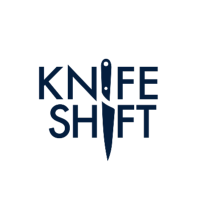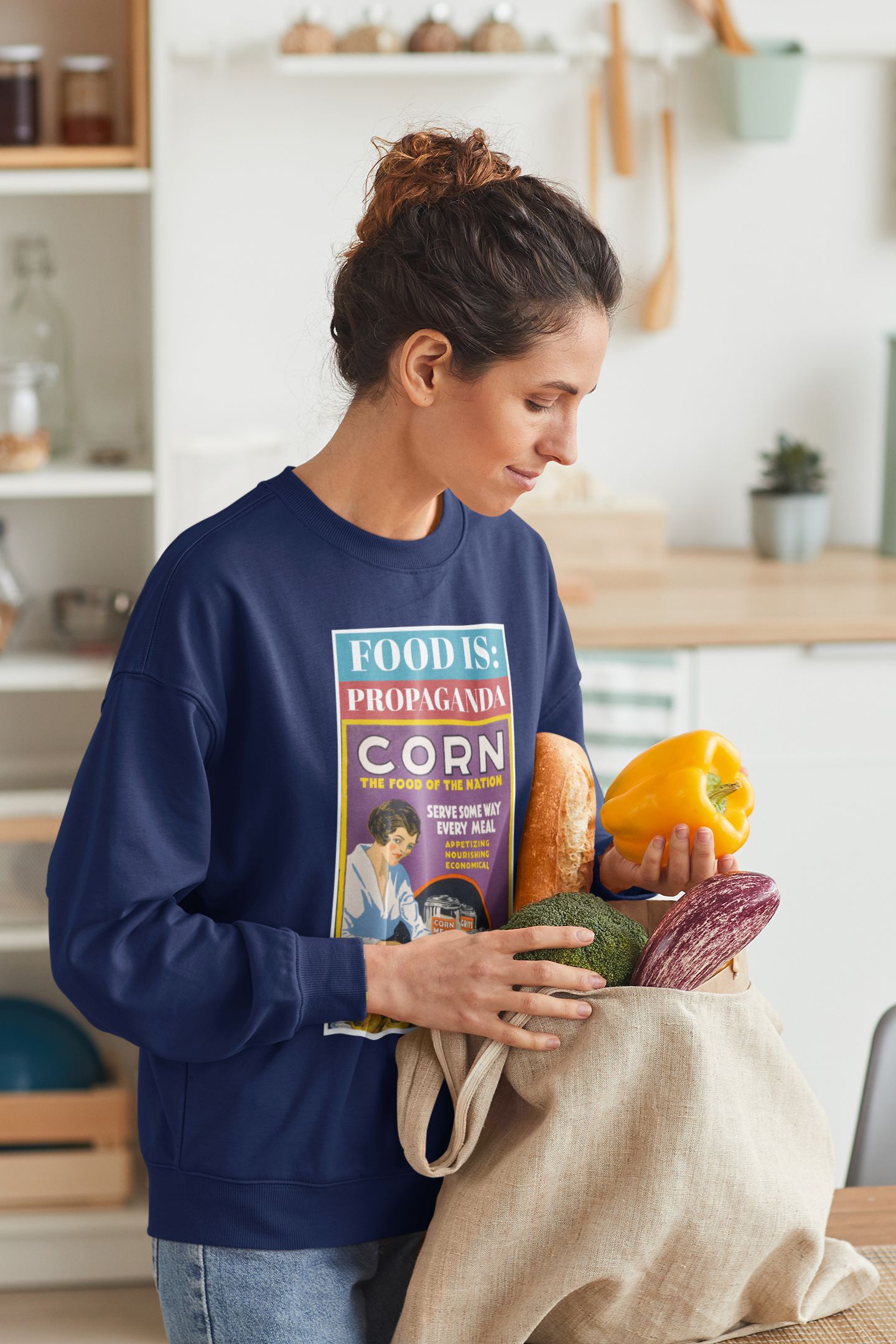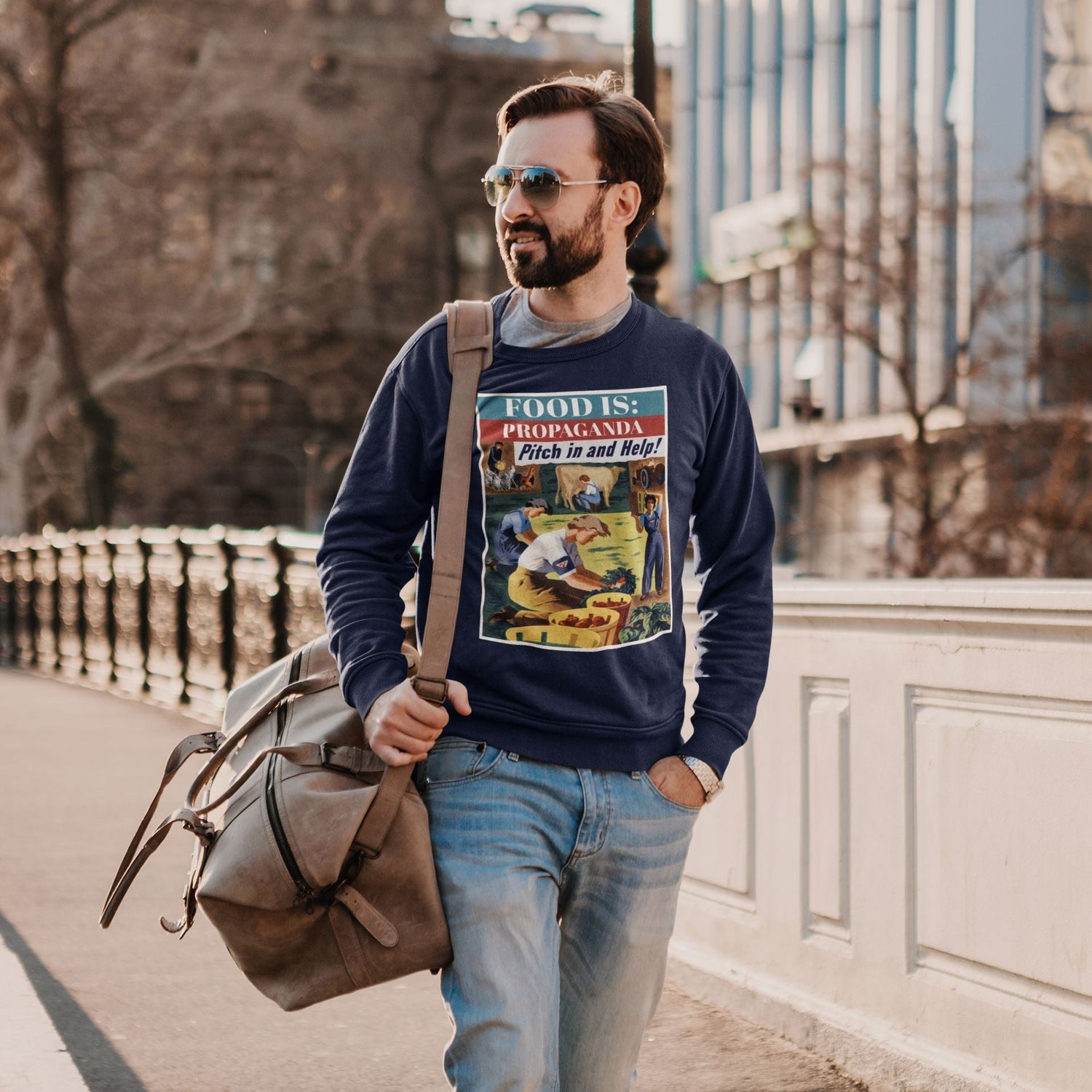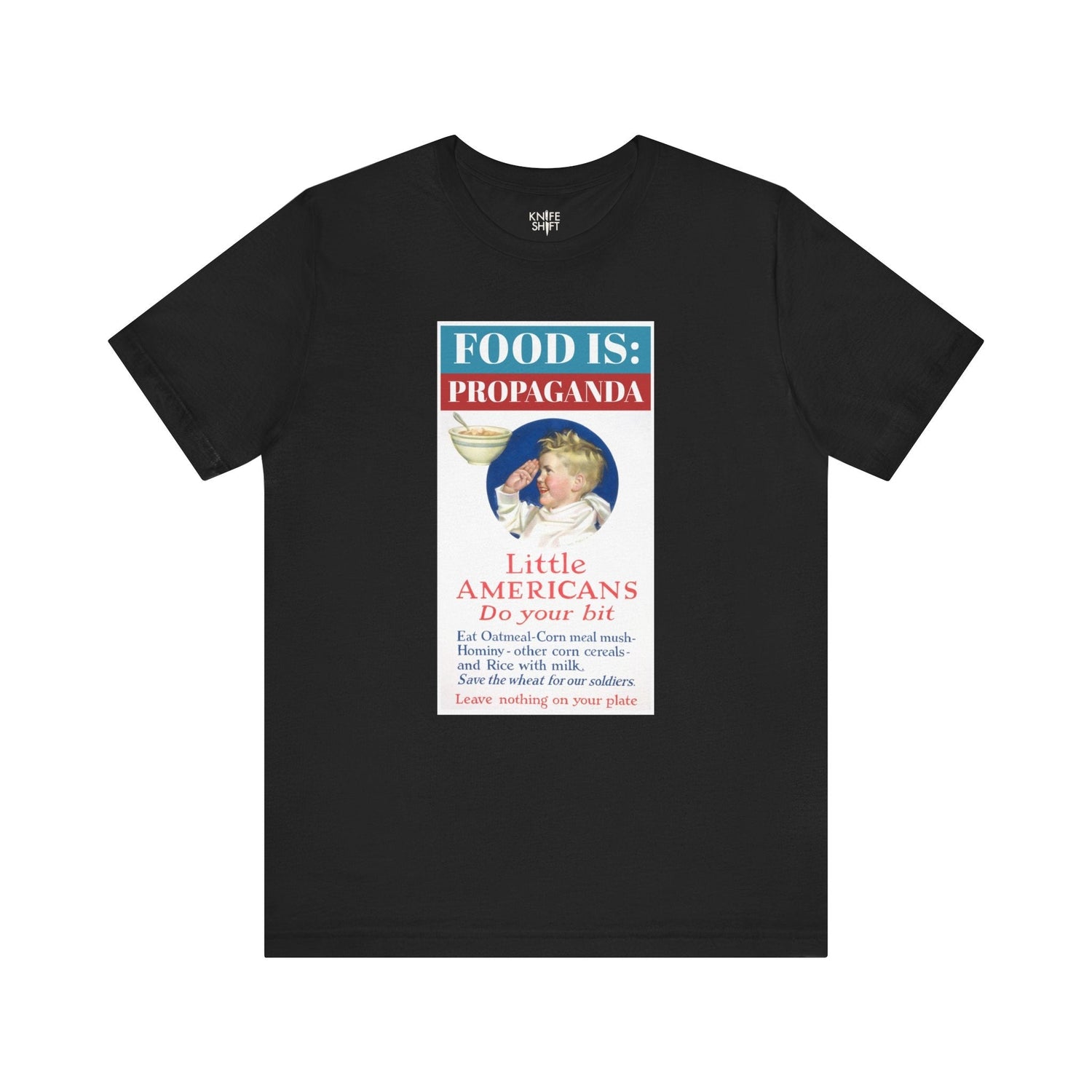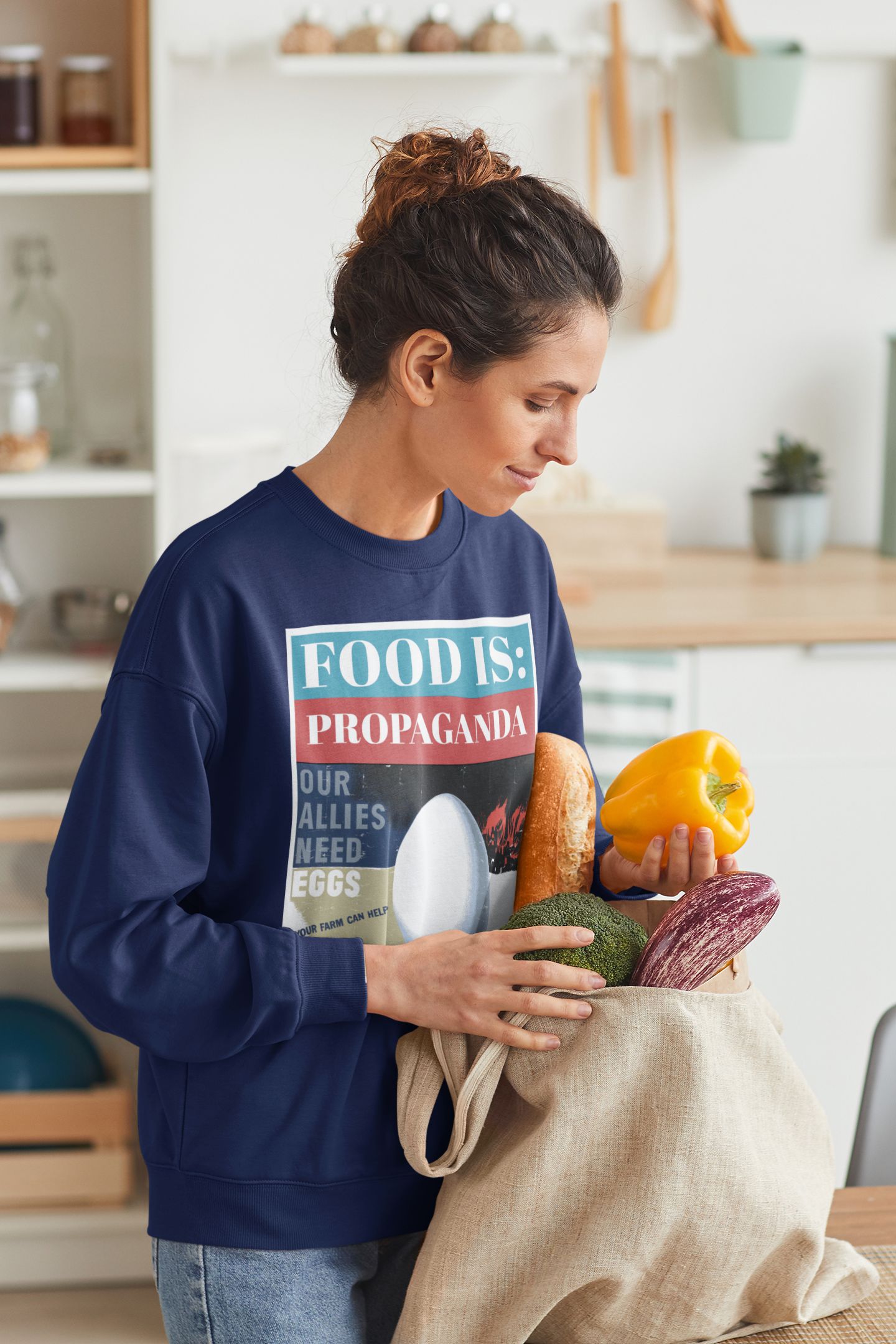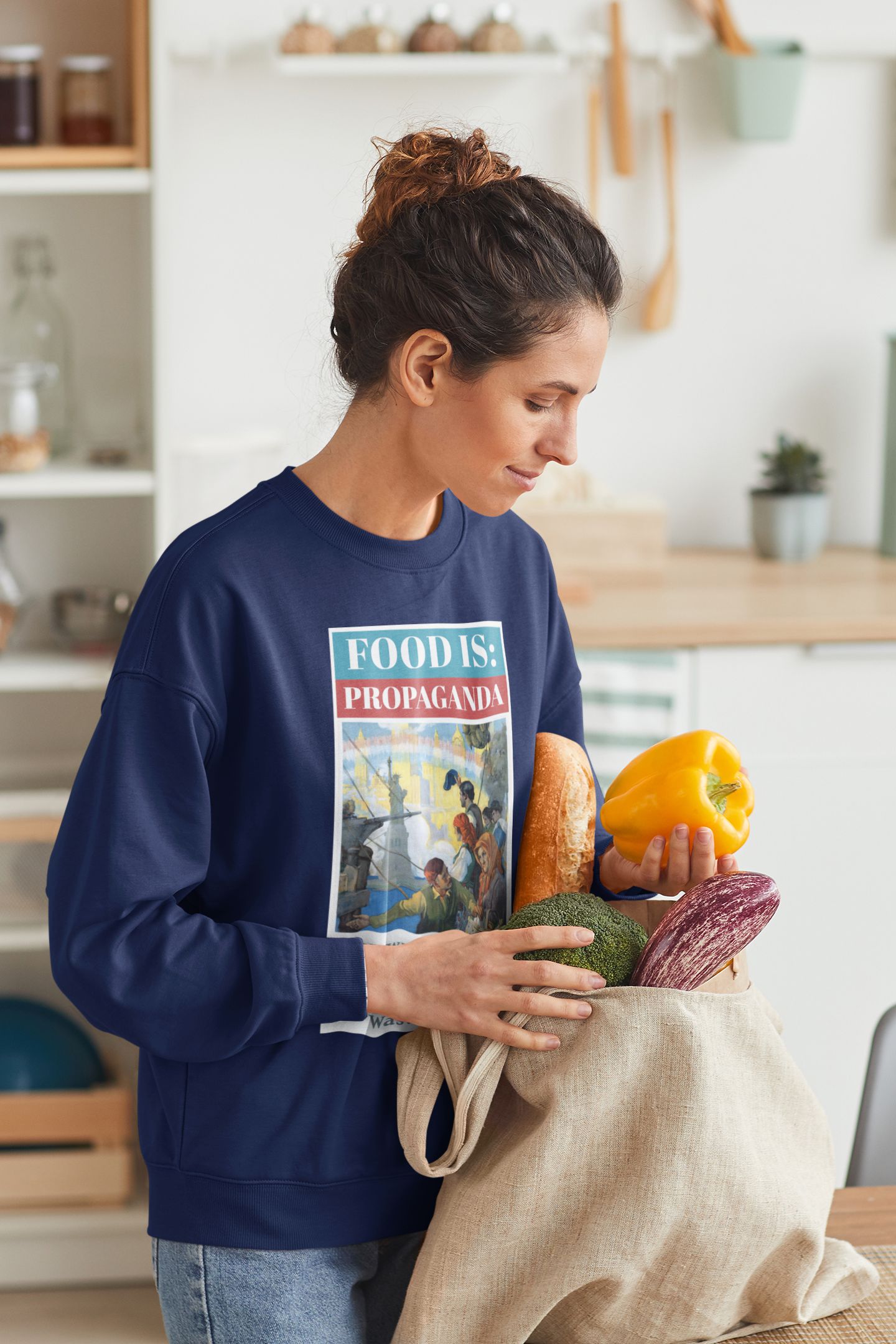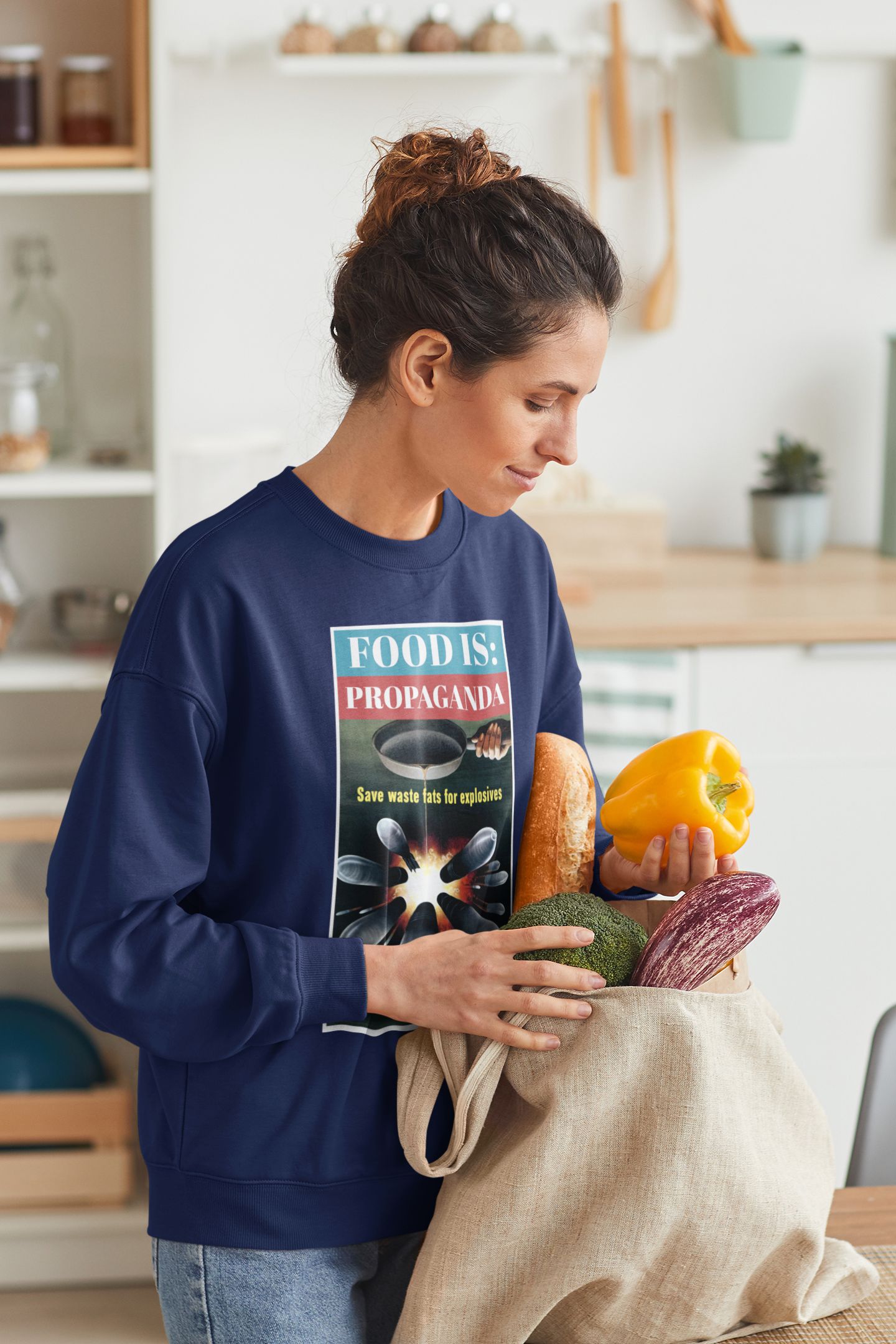Sort by:
26 products
26 products
About the Artwork:
Herbert Bayer (1900-1985) was an Austrian-born American graphic designer, painter, and photographer. A pioneer of the Bauhaus movement, Bayer was known for his clean, geometric style and focus on functionality. During World War II, he lent his talents to the U.S. Department of Agriculture (USDA), creating impactful posters like "Our Allies Need Eggs" to mobilize American farmers.
In the foreground of the poster, a giant, white egg is featured. The egg contrasts sharply with the background scene of a burning cityscape. Flames lick at the buildings, casting a glow on the smoke-filled sky. The text "Our Allies Need Eggs. Your Farm Can Help" appears in bold lettering.
The poster encourages increased egg production by demonstrating the devastation faced by America's allies during World War II. It serves to highlight the essential role played by American agriculture in supporting the war effort and to call on farmers to be unwavering in their patriotism and contribute to those fighting for freedom overseas.
Image courtesy of the U.S. Library of Congress.
About the Artwork:
Lloyd Harrison was an accomplished graphic artist known for his impactful and compelling propaganda posters, particularly those produced during World War I. Harrison's work often combined bold imagery with persuasive slogans to influence public opinion and motivate specific behaviors during a time of national need. His style is characterized by vibrant colors and dynamic compositions, which were effective in capturing the attention of a broad audience. His posters not only served practical purposes during wartime but also stand as significant historical documents that provide insight into the socio-political climate of the early 20th century.
"Corn - the Food of the Nation" by Lloyd Harrison is a striking propaganda poster that was part of a larger effort to encourage American consumers to adjust their food consumption habits during World War I. The artwork features a woman preparing baked goods like muffins and pancakes, which sit alongside canisters labeled "corn meal," "grits," and "hominy."
Image courtesy of Boston Public Library Digital Commonwealth Collections.
About the Artwork:
Hubert Morley, an American graphic artist active in the mid-20th century, was known for his vivid and motivational propaganda posters during World War II. Morley’s artwork typically featured strong, encouraging messages aimed at boosting home front morale and supporting the war effort through various means. His designs were characterized by bold colors and dynamic compositions, effectively communicating urgent messages to a wide audience. Morley’s posters not only served as functional wartime communications but also as lasting symbols of American resilience and unity during challenging times.
Created in 1945, "Your Victory Garden Counts More Than Ever" by Hubert Morley is a vibrant and compelling poster that was part of a broader national campaign to encourage the cultivation of home gardens during World War II. The artwork features a lush, bountiful garden teeming with a variety of vegetables, emphasizing the abundance that can be achieved through personal effort. At the forefront, freshly harvested produce underscores the tangible results of maintaining a victory garden.
Image courtesy of Boston Public Library Digital Commonwealth Collections.
About the Artwork:
Hubert Morley (1888-1951) was an American painter, etcher, and commercial artist. While Morley's career spanned various artistic mediums, he's particularly recognized for his contributions to the war effort during World War II. Morley created numerous posters for the U.S. government, motivating the public to support the war cause through rationing, production increases, and civilian participation.
"Pitch in and Help! Join the Women's Land Army of the U.S. Crop Corps" features four American women working on a farm. One drives a tractor, another milks a cow, and two others harvest vegetables and tend to chickens. Their expressions are determined and focused. The title urges viewers to "Pitch in and Help!" by joining the Women's Land Army.
Image courtesy of Boston Public Library Digital Commonwealth Collections.
About the Artwork:
Cushman Parker (1915-1991) was an Austrian-born American painter and graphic designer best known for his work during the mid-20th century. Parker was recruited by the U.S. Food Administration during World War I. Posters like "Little Americans, Do Your Bit" were part of a nationwide campaign mobilizing everyday citizens, including children, to contribute to the war effort in unexpected ways.
This poster features a young boy dressed in patriotic red, white, and blue raising his right hand in a salute. His gaze is fixed on a bowl of oatmeal in front of him, a spoon held mid-air. The text reads, "Little Americans, Do Your Bit: Eat Oatmeal, Corn Meal Mush, [...] Save the Wheat for Our Soldiers" in bold letters around the image. The final line reads, "Leave Nothing on Your Plate."
Image courtesy of the Library of Congress, Washington.
About the Artwork:
Save Waste Fats (Artist Unknown, c. 1943) is a World War II propaganda poster aimed to mobilize civilians on the home front. This utilitarian poster serves an instructive function, providing civilians with direction on how to recycle essential resources that can be used in the war effort.
Image courtesy of Boston Public Library Digital Commonwealth Collections.
About the Artwork:
Herbert Roese (1905-1986) was a prolific American commercial artist and illustrator active during the mid-20th century. While Roese created illustrations for various purposes, his work for the U.S. Office of Price Administration (OPA) during World War II holds particular significance. The OPA played a crucial role in managing wartime shortages through rationing. Posters like "Rationing Means a Fair Share for Us All" aimed to explain and garner public support for this essential wartime measure.
This seemingly straightforward poster utilizes a clever visual approach to convey its message. Divided into two distinct sections, the artwork tells a story. The top half depicts a scene of frustration. A woman appears to be trying to make a purchase without success at a local butcher, with a meager offering behind the counter. While another customer leaves with her purchases, the latter figure has no options to buy from. The bottom half presents a stark contrast. Two women, each holding a ration book and a small package, smile as they leave a well-stocked butcher shop. The text "Rationing Means a Fair Share for Us All" stretches across the top, emphasizing the poster's central message.
Image courtesy of Boston Public Library Digital Commonwealth Collections.
About the Artwork:
Dick Williams (1908-1981) was an American commercial illustrator whose work flourished during the mid-20th century. While details about his career are somewhat scarce, his contributions to the war effort stand out. Williams created illustrations for various publications, but his impactful posters for the U.S. Department of Agriculture (USDA) like "Of Course I Can!" played a vital role in boosting morale and promoting resourcefulness on the home front during World War II.
This colorful poster features a bright-eyed woman in a checkered dress and apron. She carries an armful of jars of colorful fruits and vegetables. Her enthusiastic expression and determined stance communicate a sense of can-do spirit. The bold text "Of Course I Can! I'm as Patriotic as Can Be – And Ration Points Won't Worry Me!" completes the poster.
"Of Course I Can!" celebrates the essential contributions of civilians during World War II presenting food preservation as a form of patriotic duty.
Image courtesy of Boston Public Library Digital Commonwealth Collections.
About the Artwork:
Lloyd Harrison (1864-1931) was an American commercial artist known for his vibrant and detailed illustrations. Active during the early 20th century, Harrison primarily created advertisements for various companies. However, his work for the U.S. Food Administration during World War I holds historical significance. Posters like "Wholesome – Nutritious: Foods from Corn" aimed to educate the public about alternative food sources during wartime shortages.
This colorful poster features a festive display of corn-based products. The composition is an array of tempting dishes made with corn. Baked goods like bread and cake sit alongside cans of corn starch and corn oil. The text "Wholesome – Nutritious. Foods from Corn" arches boldly across the top, emphasizing the health benefits of corn.
"Wholesome – Nutritious: Foods from Corn" served a dual purpose during World War I. As wheat supplies dwindled, the U.S. Food Administration encouraged citizens to incorporate more corn into their diets. The abundance of corn-based dishes showcased in the poster demonstrates the versatility of this grain. From breakfast staples like pancakes to savory grits, the artwork highlights corn's potential to satisfy a variety of culinary needs.
Image courtesy of Boston Public Library Digital Commonwealth Collections.
About the Artwork:
Herbert Bayer (1900-1985) was an Austrian-born American graphic designer, painter, and photographer. A pioneer of the Bauhaus movement, Bayer was known for his clean, geometric style and focus on functionality. During World War II, he lent his talents to the U.S. Department of Agriculture (USDA), creating impactful posters like "Our Allies Need Eggs" to mobilize American farmers.
In the foreground of the poster, a giant, white egg is featured. The egg contrasts sharply with the background scene of a burning cityscape. Flames lick at the buildings, casting a glow on the smoke-filled sky. The text "Our Allies Need Eggs. Your Farm Can Help" appears in bold lettering.
The poster encourages increased egg production by demonstrating the devastation faced by America's allies during World War II. It serves to highlight the essential role played by American agriculture in supporting the war effort and to call on farmers to be unwavering in their patriotism and contribute to those fighting for freedom overseas.
Image courtesy of Boston Public Library Digital Commonwealth Collections.
About the Artwork:
Charles Edward Chambers (1883-1941) was an American illustrator who rose to prominence during the Golden Age of American illustration. He created iconic imagery for brands and publications, but his contributions to the U.S. war effort during World War I hold particular significance. Chambers' bold and graphic style translated perfectly to wartime propaganda posters, like "Food Will Win the War," which aimed to mobilize the American public.
This poster features a group of immigrants arriving in New York Harbor, gazing up at the Statue of Liberty. They are diverse in ethnicity and dress, symbolizing the melting pot of America. The Statue of Liberty, a beacon of freedom, stands proudly in the background, bathed in a hopeful rainbow. The text at the top reads "Food Will Win the War. Wheat is Needed for the Allies," while a caption below pleads "You came here seeking freedom. Now you must help to preserve it. Waste nothing."
While the message of conserving wheat to aid the Allies is clear, the referenced American population of immigrants adds a layer of complexity. These new Americans, seeking a better life, are presented as having a stake in the war effort. The Statue of Liberty, a symbol of freedom and opportunity, reinforces the idea that preserving democracy requires a collective sacrifice.
Image courtesy of the Boston Public Library's Digital Commonwealth Collection.
About the Artwork:
Henry Koerner (1915-1991) was an Austrian-born American painter and graphic designer best known for his work during the mid-20th century. Koerner's artistic talents found a critical outlet during World War II when he was recruited by the U.S. Office of War Information. Posters like "Save Waste Fats for Explosives" were part of a nationwide campaign mobilizing everyday citizens to contribute to the war effort in unexpected ways.
This dramatic poster features a powerful visual metaphor. A woman's hand, illuminated from below, pours grease from a skillet directly into a fiery explosion. Shrapnel and bomb casings erupt from the center, symbolizing the transformative power of recycled fat. The stark black background intensifies the imagery. The text "Save Waste Fats for Explosives. Take Them to Your Meat Dealer" appears in bold white lettering at the top and bottom, delivering a clear call to action.
Image courtesy of Boston Public Library Digital Commonwealth Collections.
